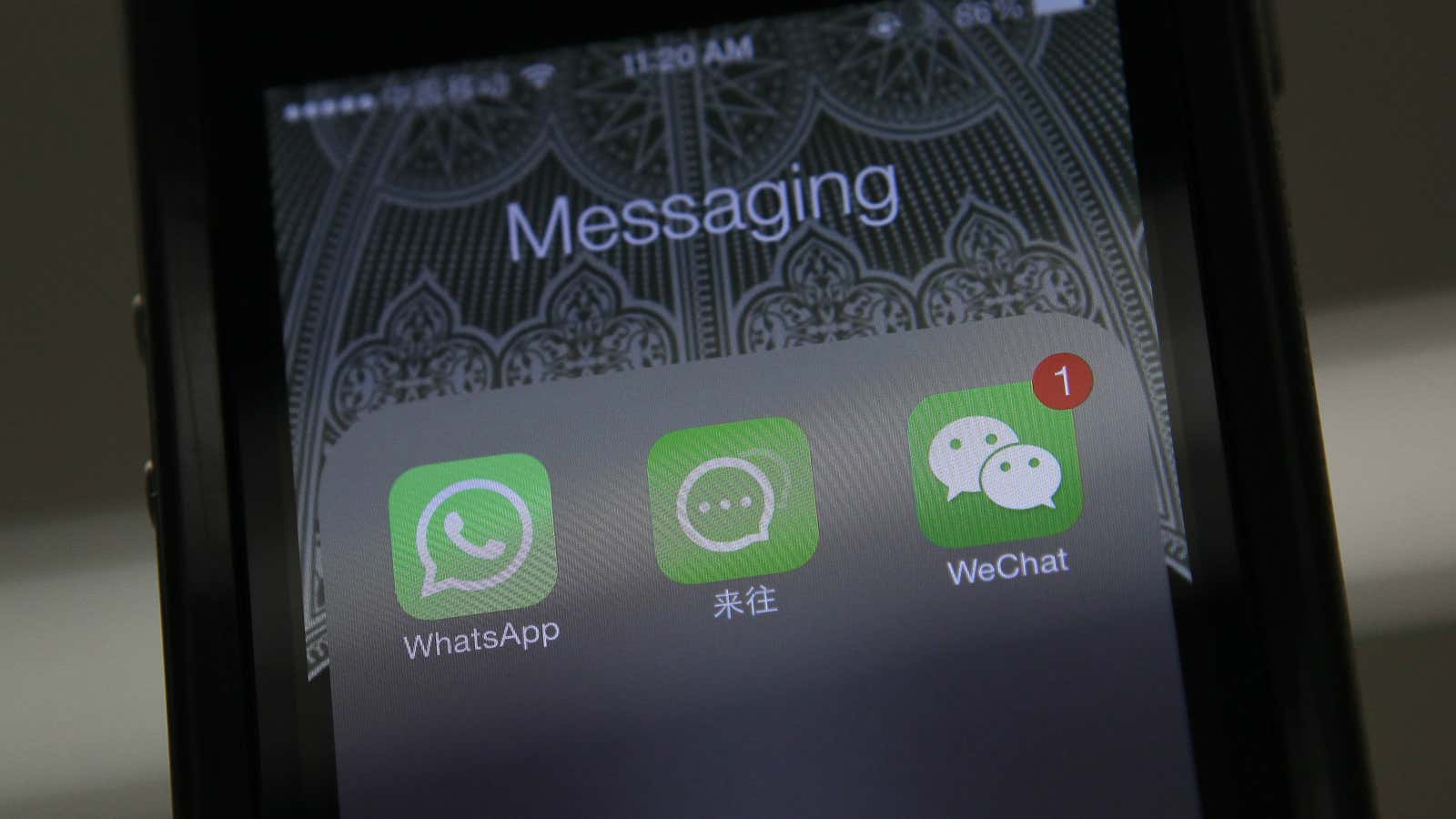South Africa’s parliament will hold hearings this month to decide whether to regulate messaging service WhatsApp, and other platforms that operate over data networks, following complaints by local mobile carriers that such apps are freeloading on their networks.
WhatsApp is incredibly popular in South Africa. With 10 million users, the country is its biggest market, boasting a higher penetration rate than anywhere else in the world where the mobile messaging service is operational. Bought by the social media giant Facebook in 2014 for a princely sum of $19 billion, the US-based company claims over 900 million users worldwide.
WhatsApp isn’t the only app under fire from mobile companies. Other so-called over-the-top (OTT) platforms such as Skype, Google Hangout and WeChat are under scrutiny as well. Because they provide users the option to text, make calls or video conference for free over a data connection supplied by mobile carriers, operators are feeling pressure on their core revenue sources of calls and SMS.
Vodacom and MTN, two of South Africa’s largest mobile companies, claim the success of these platforms is built on their hard work and investment in infrastructure in the country, and they should be regulated as a result. “Clearly they’re making a huge amount of revenue on top of the infrastructure that the operators have paid for,” Mteto Nyati, CEO of MTN South Africa, said last year.
Part of what will be determined at the parliamentary hearings, to be held on Jan. 26, is whether these OTTs should be required to secure licenses to operate in the same way that telecom companies currently are. The telecommunications committee, the body running the hearings, said that it will be discussing any “necessary policy interventions on how to govern OTTs, regulatory interventions on the guidelines to regulate OTTs,” including “legal intercept and emergency call access” and the “impact of OTTs on competition,” according to local reports.
Whatsapp has yet to respond to a request from Quartz for comment on the hearings.
The popularity of these platforms has put mobile companies in a tough spot. They are cognizant of the fact that part of what attracts users to their data services are the same platforms they are now vilifying. “A lot of your data growth is driven by the same people who are trying to cannibalize you,” Shameel Joosub, chief executive officer of Vodacom Group, told local media in November.
Additionally, analysts suggest that calls for regulating OTTs could undermine the whole mobile app ecosystem.
“Just about everything provided over the network could be regarded as an OTT,” Dominic Cull, an analyst with Ellipsis Regulatory Solutions, a South African advisory firm, told Fin24. ”Once you can’t divide them up, it obviously becomes ludicrous to try and regulate them.”
